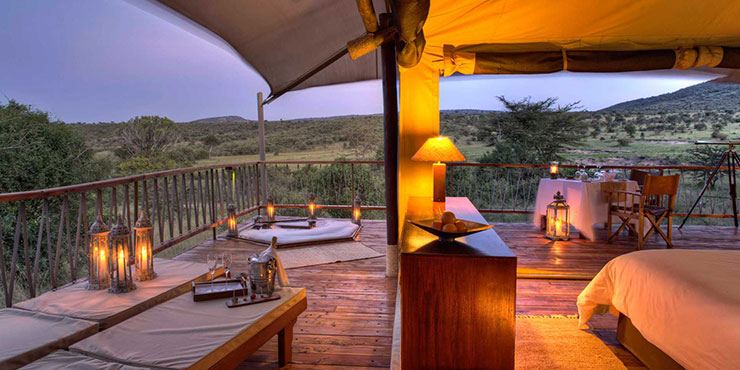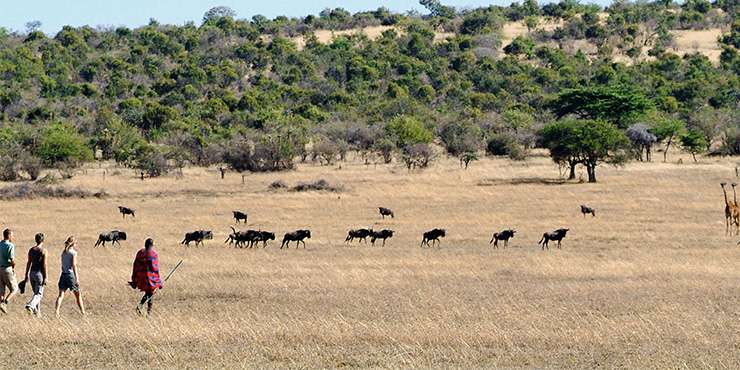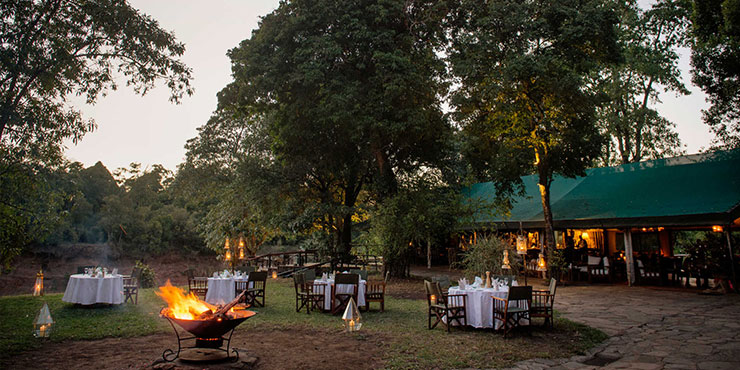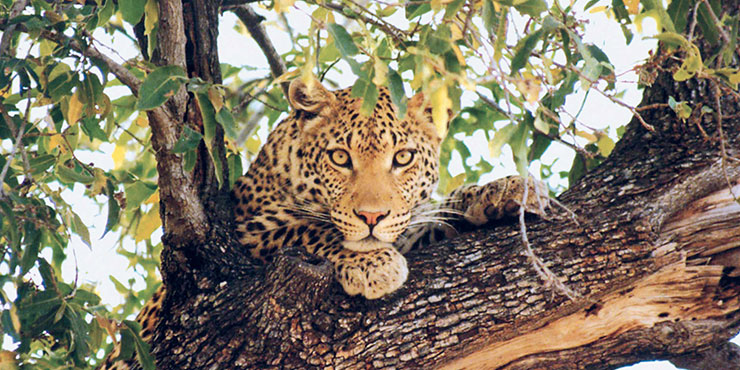Kenya is leading the way in sustainable travel, striking a delicate balance between local communities, tourists and conservation to ensure the wild stays wild for as long as possible. Here’s a look at four ways Kenya is making a difference, from a ban on single-use plastics to eco-lodges and elephant orphanages.
Creating conservancies
A crucial part of Kenya’s success is its conservancies. Areas of the country, such as Laikipia, have been divided into private reserves, often controlled by native landowners like the Maasai and Samburu, who generate income by offering small-scale safari experiences and leasing land to lodges. In turn, these reserves become a protected, biodiverse haven for animals, creating a successful symbiosis between wildlife, tourism and communities.
So, when you stay at camps like Mara Bushtops in Isaaten Conservancy, you’re directly helping to fund wildlife and community projects. The five-star tented camp offers luxury accommodation with a spa and pool, 24-hour butler service and hot tubs overlooking the animal-studded plains. Being on a conservancy means camps can run additional activities; at Bushtops, you can take night drives and walking safaris that aren’t permitted in nearby Maasai Mara National Park.

Working with communities
Kenya has learned that tourism simply isn’t sustainable without community support. Aside from conservancies, there are plenty of community-focused tourism programmes that generate income for local people. In Nairobi, for instance, you can visit the Go Granny Go! project, which helps grandmas set up pig farming businesses to support their families. During the tour, you’ll also get a unique insight into Kenyan culture as you make lunch with the women and listen to their inspiring stories.

Safari camps like Governors’ have worked with the community for decades. Not only do they provide employment opportunities for locals, they also invest in hospitals, schools and wildlife conservation programmes. When you stay at Governors’, a percentage of your money goes directly to the Maasai community of Mara Rianda, which you can visit on a respectful tour. Similarly, Kenya’s Porini camps fund conservancies like Selenkay in Amboseli, with each tent paying to protect 700 acres of habitat and around 95 percent of the staff hailing from nearby villages.

Going green
In 2017, Kenya imposed one of the world’s toughest bans on single-use plastic bags in a bid to clean up its cities and protect wildlife. In 2020, another landmark ban on all single-use plastic in conservation areas came into effect, including bottles, straws, containers, cups, cutlery and food packaging. As a result, many lodges, like Tawi in Amboseli, are now entirely plastic free and have introduced other green initiatives such as planting organic vegetable gardens.

On the Kenyan coast, lavish ocean-front resorts like Hemingways Watamu, which is set in a UNESCO-listed Biosphere Reserve, organise weekly beach clean-ups and have adopted eco-friendly water treatment facilities. Look for lodges with Gold Eco-Tourism ratings like Tawi and Loisaba Tented Camp. Both work hard to eliminate waste and use solar energy, as well as maintain habitat for wildlife.
Wildlife rehabilitation
Kenya has a stellar collection of sanctuaries and rehabilitation centres that play an essential role in protecting its iconic animals. The renowned Sheldrick Wildlife Trust in Nairobi runs the most successful elephant rescue and rehabilitation programme in the world. Visit to meet their baby elephants and rhinos; many have been orphaned by poachers and are later re-released into Tsavo East. You’ll also learn about their pioneering anti-poaching work, habitat protection initatives and mobile vet clinics.
Loisaba Conservancy in Laikipia provides a vital sanctuary for rare animals unique to the region, such as reticulated giraffes and endangered wild dogs, and has an anti-poaching progamme you can visit. At Ol Pejeta in Laikipia, you can meet the world’s last two northern white rhinos, who are protected around the clock on a 90,000-acre conservancy that was once a cattle ranch. Feed Baraka, the blind black rhino and spot around 30 southern white rhinos that have been brought back from the brink of extinction. Ol Pejeta is also home to the Sweetwaters Chimpanzee Sanctuary; set up in conjunction with the Jane Goodall Institute, it’s the only place in Kenya where you’ll see chimps.
Inspired?
To start planning your holiday, call us, contact one of our experts or arrange a phone or video appointment.
This feature was created on 29th July 2025. The information within this feature is correct to the best of our knowledge at the time of print.

_w=24_h=25.png?v=a7acb5e3b335a9529b5d5e3b6c68784874e9b227)
_w=24_h=25.png?v=a7acb5e3b335a9529b5d5e3b6c68784874e9b227)
_w=24_h=25.png?v=a7acb5e3b335a9529b5d5e3b6c68784874e9b227)
